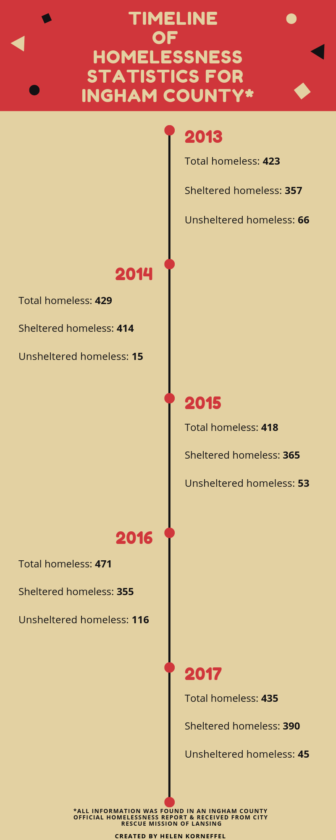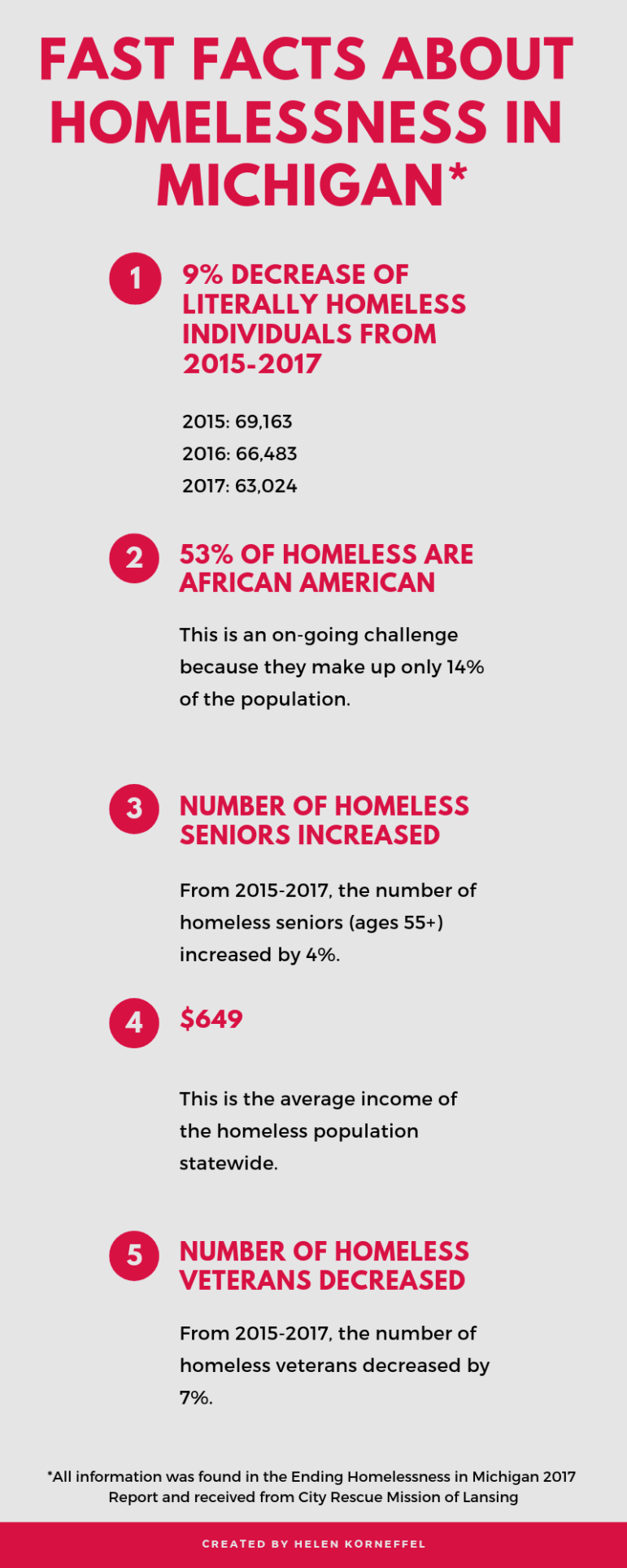The work being done by local organizations that help the homeless is making a difference, leaders and volunteers say.
The number of homeless people in Michigan has been declining, according to Michigan’s Campaign to End Homelessness, a consortium of government and nonprofit efforts to address homeless issues.

According to the campaign’s 2017 annual report, Michigan saw a decrease in the total number of people experiencing homelessness for the third year in a row.
“The hard work that all of the organizations across Michigan are putting into this issue is what is helping the decrease in homelessness in our state,” said Rebecca Zemla, who has worked at Capital Area Community Services for 34 years and is a supervisor at its Owosso Service Center. “They are really working hard with very difficult populations, like the chronic homeless.”
In 2017, there were an estimated 63,024 people in Michigan who were “literally homeless,” defined as lacking a fixed, regular and adequate nighttime residence. That was down 9 percent from 2015, when 69,163 people in Michigan were homeless. Other successes found in the report include decreased numbers of homeless single adults, homeless youth, homeless, unaccompanied minors, homeless veterans and in the chronic homeless population.
Zemla said staff at her organization screen new clients to try to help identify underlying problems, and then help to place them into shelters or to find other short-term housing solutions.
“Our case managers are very invested in helping our clients and work hard to know about what is happening in their household,” she said.
A variety of other organizations also offer services to help people dealing with homelessness.
“Our mission at Haven House is to help families that are homeless find temporary shelter and help them reach a permanent home,” said Gabriel Biber, executive director of Haven House. “Our emergency shelter generally services around 100 families, or 400 people each year. Generally, families stay about a month in our house, and during that time, we help them get their household budgets on track, find housing that is in their budget and ultimately help them move into that house.”
Biber said he was drawn to work at Haven House because the shelter takes in families; many other homeless shelters only take in individuals. After families find housing, they stay members of the Haven House family through a follow-up program. The program connects Haven House with families who have left the shelter for up to one year to make sure they have assistance staying financially stable. Haven House offers volunteer opportunities.
“The people who come to us are, by and large, very good people who are just in between things and were unable to keep the place they were living at before,” said Doreen Woodward, a retired Michigan State University faculty member who volunteers at Haven House. “Until you get to really know people and understand their circumstances, it’s really hard to know that these people are, or were, hard working people and that something happened to them that took them off of their course.”
Laura Grimwood, director of communications for the City Rescue Mission of Lansing, said her organization and others also work to counter negative stereotypes about the homeless.
“Someone who is homeless is not necessarily a street person,” Grimwood said. “Homelessness is different by country, state, region and city. Being where we are, with our climate and the fact that Lansing is not a huge metropolis, we do not have a large amount of unsheltered homeless.
“Homeless people can be attending college classes, children in school, your cashier at the bank or grocery store or the young man applying for work. They can have phones, cars, personal items and families just like everyone else. A homeless person is a person just like you, and we urge people to consider how they would want to be treated in the same situation, or if it were their sister, mother or brother.”
